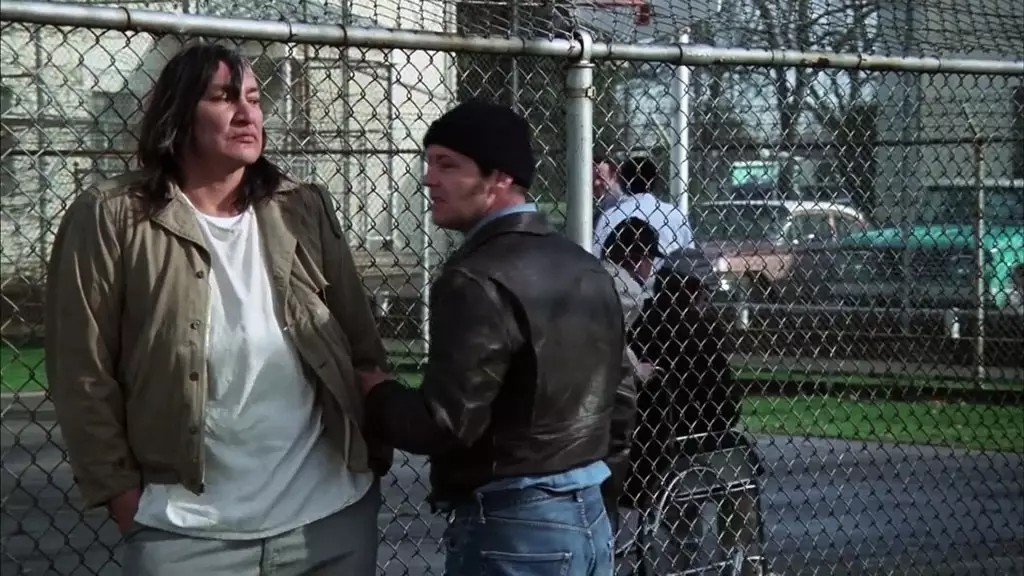The allure of classic films lies in their timeless storytelling, unforgettable performances, and cultural significance. Yet, in an era dominated by streaming platforms desperate for fresh content, Hollywood and independent filmmakers alike are increasingly turning to familiar properties to attract viewers. The latest development involving the iconic “One Flew Over the Cuckoo’s Nest” exemplifies this trend. A new television series, announced by rights holders connected to the original film, aims to explore the story from a fresh perspective—specifically, that of Chief Bromden. This approach signifies a bold attempt to revisit familiar material through the lens of a character whose internal world remains largely unexplored, promising a narrative that offers depth and nuance beyond what was possible in the 1975 film.
This fresh angle is particularly interesting because it aims to shift the narrative focus onto a character who, in the original, was essentially a mystical observer, navigating the oppressive environment with silent resilience. Developing the series from Chief’s point of view could potentially deepen audience understanding of his trauma, his complex identity, and his journey toward liberation. Such a creative decision reflects a desire to expand the universe convincingly, using the serialized format to offer richer character development and a more immersive experience. Unfortunately, details about the writers, studio, or how closely the series will follow the source material remain sparse, which makes assessing the project’s potential challenging but tantalizing.
Respecting the Source While Breaking New Ground
Despite the excitement around revisiting such a revered story, skepticism is well-founded. “One Flew Over the Cuckoo’s Nest” is a film that set a high bar, both critically and culturally, largely due to Milos Forman’s masterful direction and Jack Nicholson’s electrifying performance. The original novel by Ken Kesey presented a complex narrative that challenged the status quo—a narrative that Kesey himself felt was somewhat compromised in the cinematic adaptation. The dissonance between the novel and film leaves fans and critics debating whether a new series can truly capture the essence of what made the story resonate.
Furthermore, adaptations of classic properties often run the risk of diluting their impact when stretched into multiple episodes or seasons. While the serialized format promises more room for storytelling, it also tests the writer’s ability to keep the narrative compelling over time. As Zaentz cautions, some recent adaptations like “Ripley” or “The Mosquito Coast” have struggled to live up to their cinematic origins. Still, the series’ intention to explore post-escape life for Chief Bromden offers a potential breakthrough—if executed thoughtfully. It could provide an insightful exploration of themes like mental health, autonomy, and societal rejection, all within the confines of a renewed storytelling approach.
The Crossroads of Nostalgia and Innovation
The release of the film’s anniversary re-release and the discussions surrounding potential remakes reveal an industry grappling with its relationship to nostalgia. While studios bet heavily on remaking or reimagining classics, critics like Zaentz are cautious, urging restraint—particularly with properties as revered as “Psycho.” The idea behind a series is not merely to capitalize on past success but to craft a story that benefits from modern storytelling techniques, longer narrative arcs, and contemporary social insights.
However, the challenge remains: Is it possible to honor the original’s integrity while innovating enough to justify a new adaptation? The danger of using a classic as a “safe” property can undermine its rebellious and revolutionary spirit—an essence firmly rooted in the original narrative and its era. Yet, when done well, a series could breathe new life into the story, offering a more detailed exploration of its themes and characters that the film’s time constraints inevitably limited.
Despite these challenges, the new project signals a willingness to take risks and a recognition that stories like “One Flew Over the Cuckoo’s Nest” still hold relevance today. They speak to ongoing struggles with authority, mental health, and individual agency—issues that resonate across generations. As media consumers grow increasingly sophisticated, their craving for more complex, multidimensional storytelling only heightens the potential value—and risk—of such adaptations. If approached with respect for the original and a fresh creative vision, this series could carve out its own distinctive legacy in the annals of television history.

